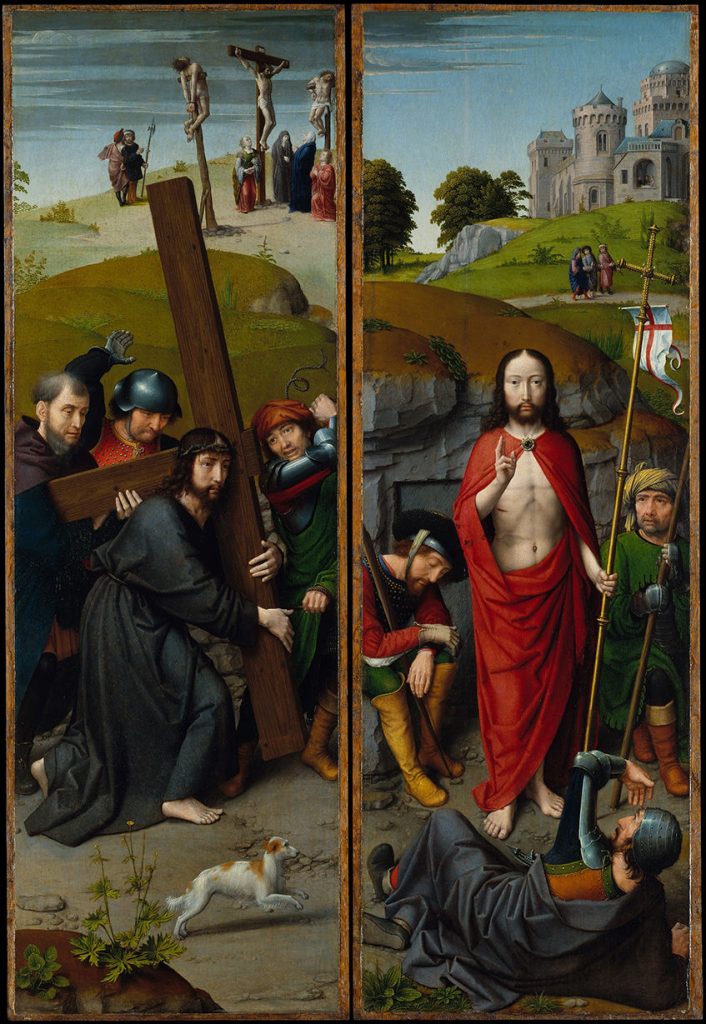Another Easter is upon us so, naturally, my wayward brain wanders to how Easter differs in its presentation in popular culture from Christmas. One simple, entirely unscientific approach I made was to Google the “top 100 Christmas movies of all time.”
I got multiple hits of many lists that often exceeded the century mark. I then tried “top 100 Easter movies of all time.” The best Google could do was deliver meager lists, none exceeding 20 movies. And other than the requisite biblical epics, the rest of these “Easter” offerings revolved around an animated version in one form or another of hopping, talking and Easter egg painting lagomorphs.
Granted, there are plenty of Christmas movies that deviate from the “real” meaning of Christmas that are fixated on a magic human-like character in a red suit or logic-defying men made entirely of ice crystals without the good sense of staying out of the noonday sun. I have to confess we enjoyed some of these films with our kids. Now young adults, our kids still suspend their requirement for “real” Christmas movies with films like “Elf” and “A Christmas Story” during the Christmas season. But the lack of Easter-themed films Google mustered signifies a fairly substantial swamping of the message trying to be heard during the holiest time on the liturgical calendar.
A lot of it has to do with the way we are built. Everybody loves puppies and everybody loves babies. The coming of Jesus in the form of a helpless baby can pull on the most atrophied heartstrings. Christmas movies, even ones that veer radically away from any semblance of religious and/or spiritual significance to the season, almost always bend toward a happy feel-good ending that seems logical as the Gospel accounts of the nativity are filled with people coming together. Angels, shepherds, magi, even the animals get into the “spirit” of the season.
Easter season, on the other hand, is when things start flying apart — sometimes quite violently. Because the ultimate victory on Easter Sunday is predicated on betrayal, abandonment and, ultimately, a brutal death it’s a lot harder for popular entertainment to turn it into some form of a mainstream literary vehicle. Of course, there have been exceptions, like “The Passion of the Christ,” but I’d argue that is the exception that proves the rule. Though I would also argue that the film’s commitment to the integrity of showing the violence that is a crucifixion is still a little off-putting.
There is an old movie by the great filmmaker Carol Reed called “Odd Man Out” starring James Mason. It is a kind of way of the cross manifested in a fugitive Irish Republican Army member who finds himself betrayed and abandoned by his friends. He makes several stops along the way of his own version of the via dolorosa until reaching his final and inevitable destination sans redemption.
Like everything else in Scripture, if we only scratch the surface we miss so much. But dip your toe a little deeper past the nativity story and things even there aren’t so bright and cheery. The Holy Family very soon after its blessed event is forced to flee the murderous intent of a tyrant and live as refugees in a foreign country. Not the kind of story line that fits in one of those idyllic New England wintery scenes, which every single Hallmark Christmas movie ever made is mandated to include.
Easter is a different kind of movie. The intensity of Holy Week, where the Real Presence is solidified in our faith to the kiss in the garden and the brutality of the crucifixion, is just plain hard to convey. When filmmakers do go all in — like biblical epics of the past, present and, most likely, future — we get choirs of angels singing, shafts of pure light and the stunned faces of actors playing disciples on Easter Sunday.
The story of Easter suffers as a literary subject because it demands so much context. For as profound the thought is of Jesus resurrected, the human drama continued in the lives of the apostles. Scripture shows us their transformation from piles of clay to monumental monoliths of faith by virtue of what they witnessed. Try putting that into a 90-minute (or even a 190-minute) movie.
Interested in more? Subscribe to Angelus News to get daily articles sent to your inbox.

